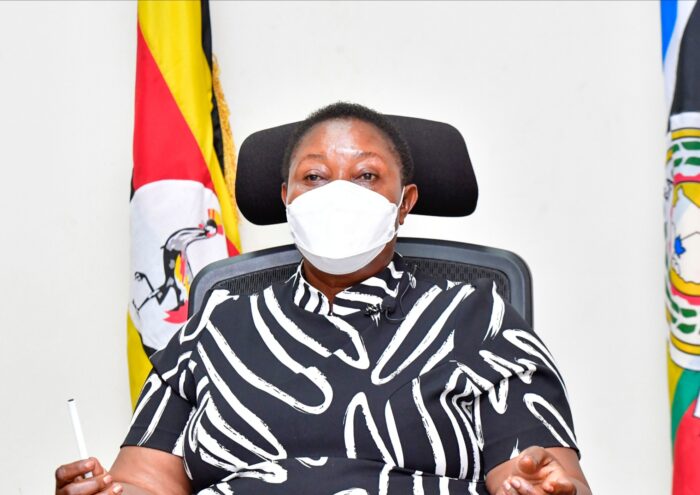The Ministry of Health (MoH) in Uganda has urged citizens to observe all Covid-19 Standards of Operating Procedures (SOPs), as an effective strategy to tackle the spread of Monkeypox.
Uganda is yet to record a case of Monkeypox but the ministry says Ugandans must be cautious as the disease has been recorded in 23 non-endemic countries globally, and at least eight endemic countries within the African tropical belt that covers Ugandan as well.
On Saturday, officials from the Ministry of Health suggested that authorities have to get back on the drawing board and fully enforce SOPs because the deadly disease spreads in ways similar to those of COVID-19.
The World Health Organisation (WHO) on Saturday declared the monkeypox outbreak, which has affected nearly 16,000 people in 72 countries, to be a global health emergency -the highest alarm it could sound.
“I have decided that the global monkeypox outbreak represents a public health emergency of international concern,” WHO Director Dr. General Tedros Adhanom Ghebreyesus said in a press briefing.
He also recommend the establishement of health and multi-sectoral coordination mechanisms to strengthen all aspects of readiness for responding to monkeypox and stop human to human transmission by various health authorities in states that are at a high risk.
This announcement by WHO comes against the backdrop of the discovery that Monkeypox is spreading at a terrific speed in endemic and non-endemic countries, just like the case was with COVID-19.
Dr. Daniel Kyabayinze, the commissioner in charge of public health at the Health Ministry said the ministry had drafted a series of measures against Monkeypox, which are in correlation with COVID-19 SOPs, and urged Ugandans to wear masks all the time, practice social distancing, stay away from over crowded places to effectively guard against Monkeypox.
“Like what we did for the case of COVID-19, we should strictly observe SOPs, like social distancing, ensuring proper hygiene, staying away from over crowded places and even those who experience symptoms synonymus with those of this disease should seek medical checkup, in order to establish the cause of such, but in Uganda, we have not registered any such cases of Monkeypox,” Dr. Kyabayinze said.
He said much as Uganda has not registered any cases of Monkeypox, blood samples taken from people with symptoms synonymus with those of the disease have been sent to several laboratories for testing.
According to Statistics by WHO, 98% of people who contract Monkeypox get it from physical contact with infected persons, and in various leisure places like bars, Saunas, steam bath and many others.
In a press statement a few days ago, Dr. Henry Mwebesa, the Director General Health Services in Uganda urged the general public to remain vigilant and report any suspected patients to the nearest health workers or the Ministry.
He said the Ministry, working with partners, is closely monitoring the evolving situation of the outbreak of the disease in the different parts of the world.
To avoid catching the disease, Mwebesa advised the public to avoid direct physical contact with an infected person, including avoiding sexual contact with an infected person.
He said Monkeypox patients must abstain from sex, including oral sex, adding that during this period, patients should be given supportive medical care to ease symptoms such as pain or itchiness.
It should of course be remembered that Monkeypox was first discovered in 1958, when the outbreaks of a disease causing the pox were identified in Monkeys held for months in captivity for scientific research.
It was first seen in humans in 1970’s in Democratic Republic of Congo (DRC), and is now endemic parts of central and West Africa.
Signs and symptoms
Symptoms for Monkeypox normally appear between 5 to 13 days after infection, although it can take up to 21 days for them to appear. Early symptoms include fever, headache, muscle ache, backache, swollen lymph nodes, chills and exhaustion.
Once fever has appeared, blisters and a rash tends to erupt, concentrated on the face, hands and feet before spreading to other areas of the body. It can spread to the inside of the mouth, the genitals and the cornea.
The rash progresses until it forms a scab which falls off, and in some cases large sections of skin can drop off the body. Although symptoms often ease within a month, one in ten cases can be fatal.
Do you have a story in your community or an opinion to share with us: Email us at Submit an Article









